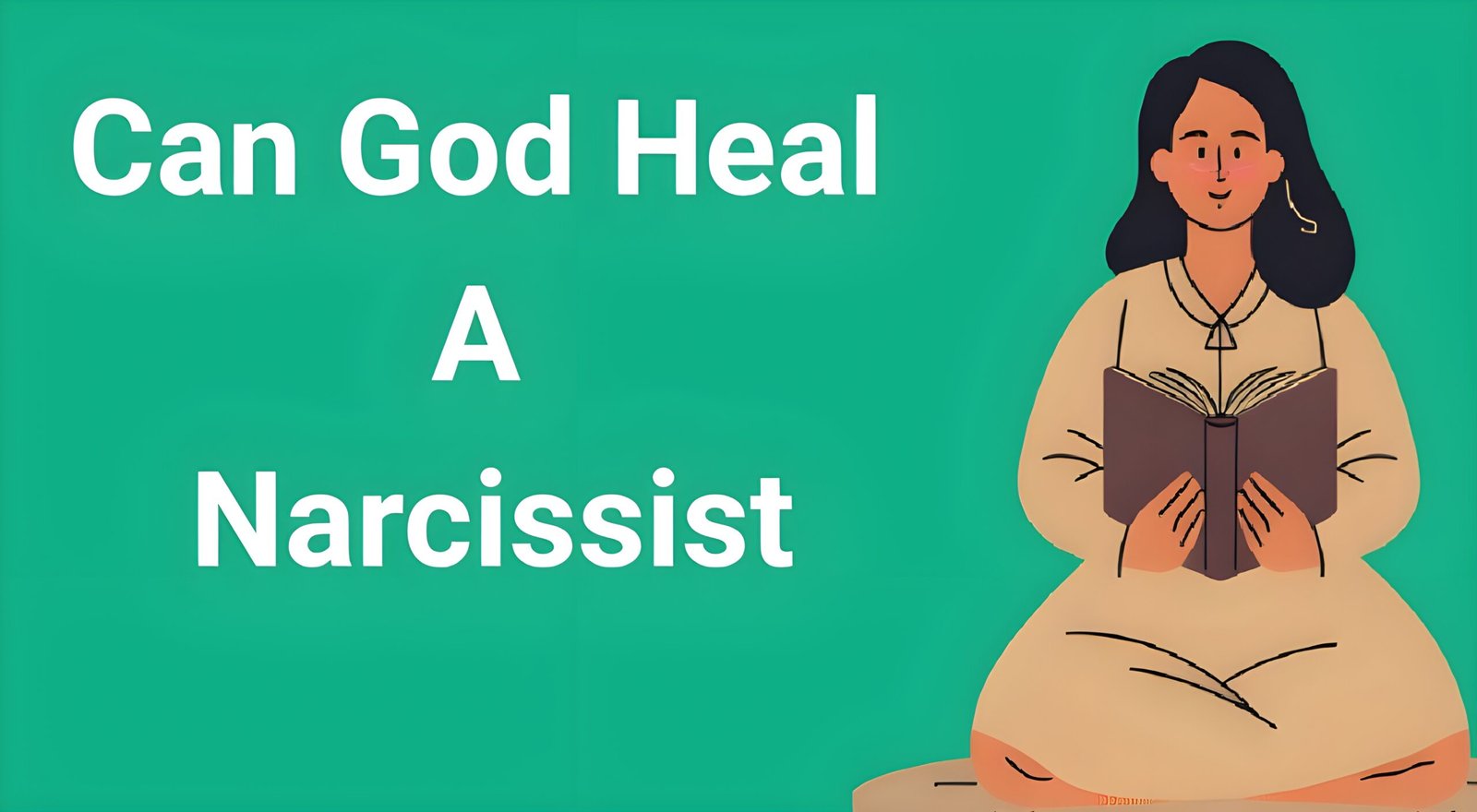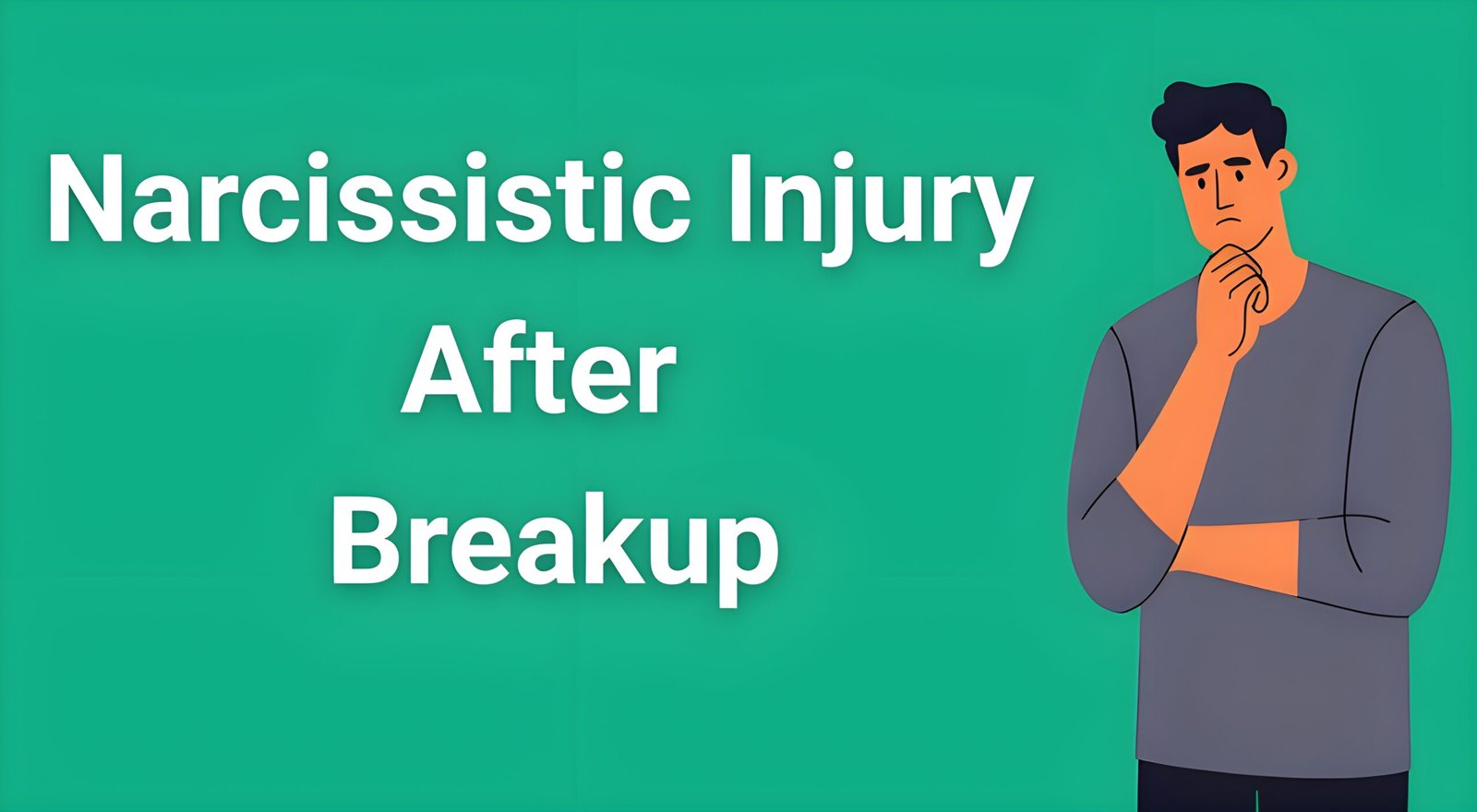If you’re reading this at 3 AM, desperately searching for answers about whether the narcissist in your life can change, you’re not alone. The question “can God heal a narcissist” has been typed into search engines by countless people holding onto their last thread of hope.
- The Brutal Reality About Narcissistic Personality Disorder
- What Scripture Says: Biblical Examples of Divine Transformation
- Why Most Narcissists Never Change: The Spiritual Barriers
- The Role of Free Will in Divine Healing
- When Divine Intervention Does Occur: Signs of Authentic Change
- What This Means for You: Practical Guidance
- The Trauma Bond Factor: Why You Keep Hoping
- Professional Help: When Prayer Isn’t Enough
- Breaking Free: Your Path to Freedom
- Prayer Strategies That Actually Help
- The Hard Truth About Divine Timing
- Protecting the Next Generation
- Finding Your Support System
- Frequently Asked Questions
- Conclusion: Your Path Forward
Perhaps it’s your spouse who charms everyone at church but becomes cruel behind closed doors. Maybe it’s a parent who uses scripture to justify their control. Or a friend who claims divine calling while manipulating everyone around them.
You’ve prayed. You’ve believed. You’ve waited for a miracle that seems to never come.
Today, we’re diving deep into what scripture actually says about narcissistic change, what modern psychology reveals, and most importantly—what this means for your healing journey.
The Brutal Reality About Narcissistic Personality Disorder
Before we explore the spiritual dimension, let’s establish what we’re dealing with. Narcissistic Personality Disorder isn’t just selfishness or pride—it’s a complex psychological condition characterized by:
- Grandiose sense of self-importance
- Lack of empathy for others
- Exploitation of relationships
- Belief in their own superiority
- Inability to recognize their faults
The most challenging aspect? Narcissists don’t believe they need healing. They see themselves as the solution, not the problem. This creates a fundamental barrier to change that even the most powerful prayers must navigate.
Research shows that only 1-15% of people with narcissistic traits ever seek therapy voluntarily. Of those who do, the success rate for meaningful change remains discouragingly low.
What Scripture Says: Biblical Examples of Divine Transformation
The Bible does contain examples of God transforming narcissistic hearts, but each story reveals crucial principles about how divine healing actually works.
King Nebuchadnezzar: Pride Brought Low
The most compelling biblical example is King Nebuchadnezzar of Babylon. This ruler declared himself divine, saying, “Is not this the great Babylon I have built as the royal residence, by my mighty power and for the glory of my majesty?” (Daniel 4:30).
God’s response was swift and severe. Nebuchadnezzar was driven into the wilderness to live like an animal for seven years. Only after this complete humbling did he acknowledge God’s sovereignty.
The key insight: God healed Nebuchadnezzar’s narcissism through total humiliation and the removal of all his sources of narcissistic supply.
Pharaoh: When Hearts Remain Hard
Conversely, Pharaoh’s story shows us that divine intervention doesn’t always result in healing. Despite witnessing ten devastating plagues, Pharaoh repeatedly hardened his heart. Each miracle only strengthened his resistance to change.
This teaches us a sobering truth: God respects human free will, even when it leads to destruction.
Saul to Paul: The Exception, Not the Rule
The transformation of Saul to Paul represents perhaps the most dramatic personality change in scripture. Yet this conversion came through a direct, overwhelming encounter with Jesus Christ—not through the prayers or efforts of others.
Paul himself wrote, “But when God, who set me apart from my mother’s womb and called me by his grace, was pleased to reveal his Son in me…” (Galatians 1:15-16).
Why Most Narcissists Never Change: The Spiritual Barriers
Understanding why God can heal a narcissist but usually doesn’t requires examining several spiritual principles:
The Pride Problem
Proverbs 16:18 warns us that “Pride goes before destruction, a haughty spirit before a fall.” Narcissism is essentially pride in its most toxic form. It creates a spiritual barrier that blocks both human connection and divine grace.
Narcissists see themselves as god-like, making it nearly impossible to humble themselves before the true God. They can quote scripture, attend church, and even lead ministries while remaining fundamentally unchanged.
The Lack of True Repentance
2 Corinthians 7:10 distinguishes between worldly sorrow and godly sorrow that leads to repentance. Narcissists may express regret when caught in wrongdoing, but this is typically worldly sorrow—sadness about consequences, not genuine repentance for their actions.
True repentance requires:
- Acknowledgment of wrongdoing
- Genuine remorse for harm caused
- Commitment to change behavior
- Willingness to make amends
These requirements are nearly impossible for someone with narcissistic traits to fulfill.
The Deception Factor
2 Timothy 3:13 tells us that “evil people and impostors will go from bad to worse, deceiving and being deceived.” Many narcissists become skilled at using religious language and behavior to manipulate others while remaining spiritually empty.
They may appear to change temporarily, especially when facing consequences, but this is often strategic rather than genuine transformation.
The Role of Free Will in Divine Healing
The question “can God heal a narcissist” must be understood within the context of human free will. God could forcibly change anyone’s heart, but doing so would violate the very foundation of authentic relationship.
Joshua 24:15 emphasizes this principle: “Choose for yourselves this day whom you will serve.” Even God’s healing power requires the recipient’s cooperation.
For narcissistic healing to occur:
- The person must recognize their need for change
- They must genuinely desire transformation
- They must be willing to surrender control
- They must commit to the difficult work of change
These prerequisites explain why narcissistic transformation is so rare—not because God lacks power, but because narcissists rarely meet these conditions.
When Divine Intervention Does Occur: Signs of Authentic Change
While rare, some narcissists do experience genuine transformation. Here are signs that indicate real spiritual healing rather than manipulation:
Consistent Humility Over Time
True change manifests as sustained humility, not just temporary compliance. The person genuinely acknowledges their faults without defensiveness or blame-shifting.
Empathy for Their Victims
Authentic healing produces genuine empathy for those they’ve hurt. They stop minimizing damage and take full responsibility for their actions.
Changed Behavior Without Audience
Real transformation continues even when no one is watching. Their private behavior aligns with their public persona.
Acceptance of Consequences
Truly healed individuals accept natural consequences for their actions without resentment or attempts at manipulation.
Sustainable Relationships
They develop the capacity for mutual, reciprocal relationships rather than exploitative ones.
What This Means for You: Practical Guidance
If you’re wondering whether God can heal the narcissist in your life, here’s what you need to understand:
Stop Waiting for Their Change to Begin Your Healing
The most dangerous trap is putting your healing on hold while waiting for their transformation. This can literally cost you years or decades of your life.
Your healing journey must be independent of their choices.
Recognize the Difference Between Hope and False Hope
Biblical hope is grounded in God’s promises to you, not in the potential change of others. False hope keeps you trapped in cycles of abuse while waiting for miracles that may never come.
Understand Your Role vs. God’s Role
Your role: Set boundaries, protect yourself and your children, seek healing, and pray if led to do so. If you can’t leave your situation immediately due to financial, legal, or safety constraints, there are specific survival strategies you can implement to protect your mental health while planning your exit.
God’s role: Deal with the narcissist’s heart according to His will and timing.
You cannot change another person’s heart—that’s exclusively God’s domain.
Focus on What You Can Control
Instead of asking “can God heal a narcissist,” start asking:
- “How can God heal me?”
- “What boundaries does God want me to establish?”
- “How can I protect my emotional and spiritual well-being?”
The Trauma Bond Factor: Why You Keep Hoping
Many people stuck in narcissistic relationships experience trauma bonds—powerful psychological attachments formed through cycles of abuse and intermittent kindness. These bonds can feel like love but are actually neurological addictions that keep you hoping for change.
Understanding trauma bonds helps explain why you might:
- Obsessively check their social media
- Feel physically ill when considering leaving
- Make excuses for their behavior
- Believe their promises to change
- Feel responsible for their healing
Breaking free from trauma bonds requires specific strategies that address both the psychological and spiritual dimensions of healing. A structured, 30-day trauma bond recovery approach can help rewire your brain’s response patterns and break the addiction-like cycle that keeps you hoping for change.
Professional Help: When Prayer Isn’t Enough
While we believe in God’s healing power, He also works through professional counselors, therapists, and support systems. Seeking professional help isn’t a lack of faith—it’s wisdom.
A comprehensive narcissistic abuse analysis from a certified specialist can help you:
- Understand the specific type of narcissistic behavior you’re dealing with
- Develop personalized safety strategies
- Process trauma and its effects
- Create a realistic plan for your future
- Distinguish between genuine change and manipulation
Many people find that getting a detailed Narcissistic Abuse Clarity Report brings the understanding they’ve been desperately seeking—often providing more insight in 72 hours than years of confusion and second-guessing.
Breaking Free: Your Path to Freedom
If you’ve concluded that the narcissist in your life is unlikely to change, you’re not giving up on God’s power—you’re accepting His wisdom about free will and choosing your own healing.
Breaking free involves:
Phase 1: Reality Acceptance (Days 1-7)
- Acknowledging the truth about your situation
- Grieving the relationship you thought you had
- Stopping attempts to change them
Phase 2: Trauma Bond Breaking (Days 8-20)
- Implementing no-contact or low-contact strategies
- Addressing withdrawal symptoms
- Rebuilding your sense of reality
Phase 3: Identity Reclamation (Days 21-30)
- Reconnecting with your true self
- Rebuilding healthy relationships
- Establishing sustainable boundaries
Phase 4: Future Protection (Ongoing)
- Developing discernment skills
- Maintaining healthy relationship patterns
- Continuing personal growth
This process requires specific tools and strategies designed for trauma bond recovery.
Prayer Strategies That Actually Help
If you feel called to pray for the narcissist in your life, here are biblically-grounded approaches:
Pray for Their Heart to Be Exposed
Ask God to bring their true character into the light where others can see it clearly.
Pray for Their Victims’ Protection
Focus prayers on safety and wisdom for those being harmed.
Pray for Your Own Discernment
Ask God to help you see the situation clearly without false hope or minimization.
Pray for Strength to Follow God’s Guidance
Whether that guidance leads to setting boundaries, seeking help, or leaving the relationship entirely.
Set Time Limits on Prayer
Don’t allow prayer to become an excuse for inaction or a way to avoid making difficult decisions.
The Hard Truth About Divine Timing
God’s timing rarely aligns with our desperation. The narcissist may experience consequences or transformation years after you’ve moved on—or never at all.
Your responsibility is to respond to God’s guidance for your life today, not to wait indefinitely for someone else’s possible future change.
This isn’t abandoning faith; it’s exercising the wisdom and discernment God has given you.
Protecting the Next Generation
If you have children involved, the question becomes even more urgent. Children in narcissistic family systems often develop their own trauma responses and may be at risk for continuing these patterns.
Breaking the cycle means:
- Modeling healthy boundaries
- Teaching children to recognize manipulation
- Providing professional support when needed
- Creating safe, predictable environments
- Avoiding parentification of children
Your healing journey becomes their protection and their example of what healthy relationships look like.
Finding Your Support System
Healing from narcissistic abuse requires connection with others who understand. Isolation is one of the narcissist’s most powerful tools—they deliberately separate you from support systems.
Rebuilding connection involves:
- Finding trauma-informed counselors
- Joining support groups for abuse survivors
- Reconnecting with healthy family and friends
- Accessing online communities with shared experiences
- Working with specialists who understand narcissistic abuse
Frequently Asked Questions
Q: Isn’t leaving my narcissistic spouse giving up on God’s plan for marriage?
A: God’s design for marriage involves mutual love, respect, and sacrifice. Abuse violates the covenant. Many biblical scholars argue that persistent, unrepentant abuse constitutes abandonment of the marriage covenant.
Q: How do I know if my partner is truly changing or just manipulating me again?
A: True change involves consistent behavior over extended periods, genuine empathy, acceptance of consequences, and sustained humility. Manipulation typically includes love-bombing, promises without action, and temporary improvement that fades once you re-engage.
Q: What if other Christians judge me for setting boundaries or leaving?
A: Well-meaning Christians often don’t understand the dynamics of narcissistic abuse. Seek counsel from those trained in abuse dynamics. Your safety and sanity are biblical priorities.
Q: Can medication or therapy help narcissists change?
A: While some therapeutic approaches may help with specific behaviors, fundamental personality change remains extremely rare. Success requires the narcissist’s genuine commitment to long-term, intensive work—something most are unwilling to pursue.
Q: How do I protect my children while still allowing them to have a relationship with their narcissistic parent?
A: This requires careful planning with professional guidance. Strategies may include supervised visits, clear documentation, teaching children about manipulation tactics, and ensuring they have safe spaces to express their feelings.
Conclusion: Your Path Forward
The question “can God heal a narcissist” has a complex answer: Yes, God has the power, but healing requires the narcissist’s cooperation—something they rarely provide. While we hold space for divine miracles, we cannot build our lives around their possibility.
Your healing journey is not dependent on their change. God’s plan for your life includes freedom, peace, and authentic relationships. Sometimes His greatest miracle is giving you the strength to walk away from what’s destroying you.
Whether the narcissist in your life ever changes or not, you can choose healing. You can choose freedom. You can choose to reclaim the life God intended for you.
The hardest truth? Your freedom begins the moment you stop waiting for their change and start focusing on your own healing.
If you’re ready to take that step, you don’t have to do it alone. Professional support, proven strategies, and a community of survivors are waiting to help you reclaim your life.
Remember: Hope deferred makes the heart sick, but a longing fulfilled is a tree of life. (Proverbs 13:12)
Today can be the day your real healing begins.






